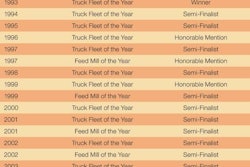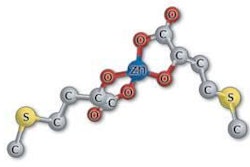Today's poultry production practices bring with them intense metabolism and other stress factors on birds, often leading to an increase in free radicals production. The result can be decreased performance and increased health problems leading to lower quality of end products like meat and eggs.
So says Ghislaine Roch, an independent feed nutritionist in Canada, who has been working on antioxidants in animal production for over ten years. She runs a poultry research farm where she has conducted numerous studies with organic versus inorganic selenium, and talked about her findings at Lallemand's International Selenium Yeast Seminar held last year in Grenaa, Denmark. She described positive effects of the organic selenium source on performance, noting improvements in average weight gain, feed conversion ratios, skin elasticity and feathering.
Roch also reported additional evidence that selenium yeast supplementation in broiler breeders and in layers improves hatchability, egg quality (color) and antioxidative properties, including increases in selenium content, Vitamin E content and GSH-Px (glutathione peroxidase) enzymatic activity.
Improving performance
She described a trial performed on 672 broilers, in three groups, from day 0 to slaughter (5 weeks). Use of organic selenium yeast, in this case the product Alkosel, improved the overall average daily weight gain when compared to supplementing with inorganic selenium. The effect was statistically significant in the last week of the trial (106.6 g vs. 99.6 g), noted Roch.
Overall feed conversion rate and slaughter weight were also significantly improved with organic selenium when compared to inorganic selenium (1,546 vs. 1,684), offering the opportunity for better returns on producer investment.
Roch reported that in another study (Venne, 2003), broiler breeders were supplemented with either inorganic selenium or organic selenium yeast between weeks 20-35. Antibodies against several diseases were measured in the broilers. Roche said that for two of the pathogens tested, infectious Bursal disease and Reovirus, supplementation with the organic yeast product allowed a better maternal immunity transfer, with a 20 to 25 percent increase in the antibody titer, offering a better protection to the chicks and increased livability for the first 10 days.
Improved fertility
Roch noted that a fertility study was performed in Portugal in 2004, on 520 cockerels, during 4 months. When compared to inorganic selenium, the organic selenium yeast product improved male fertility, with an increase of 4.2 percent in the number of saleable chicks.
Organic selenium yeast supplementation in layer hens has been shown to increase egg selenium content when compared to equivalent doses of inorganic selenium, says Roch, due to the higher bioavailability of organic selenium. In a trial performed in 2003, Roch acheived a 92 percent increase in egg selenium content with organic selenium yeast. She noted that the benefits are far-reaching: from consumers, for which selenium status is generally too low, to reproducing flocks, for improving chicks' antioxidant status.
It has recently been demonstrated that there is a linear correlation between the amount of selenium yeast in the diet and the eggs' selenium content.
Greater safety
There has long been concern that selenium can be toxic when fed in too high of doses. Roch presented a trial in broilers with a high dose of selenium yeast (5 ppm), showing a significant improvement of performance (feed conversion rates and slaughter weight), and a significant increase of the animals' blood, liver and muscle selenium content. She claimed that an equivalent dose of selenium in its mineral form would be highly toxic. The lack of toxicity of high selenium yeast dosage is another important argument in favor of selenium yeast.
Roch told the seminar participants that selenium yeast was the most bioavailable and lower toxic source of selenium to be used in poultry diets. It contributes to improved growth performance in commercial conditions and appears to reduce the impact of stress in commercial farming, lowering mortality rates and improving flock uniformity. Selenium yeast can also play a role in improving egg nutritive value and quality for consumers by improving egg selenium status, she added.
.jpg?auto=format%2Ccompress&crop=faces&fit=crop&h=48&q=70&w=48)
.jpg?auto=format%2Ccompress&fit=crop&h=167&q=70&w=250)














